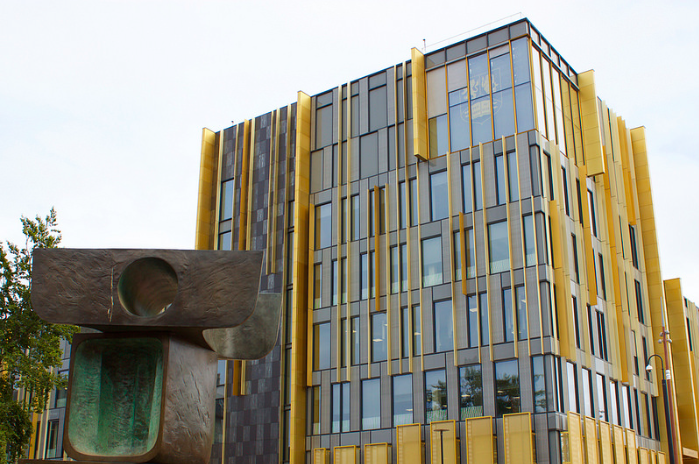
An award-winning exhibition called ‘Museum Without a Home’ has been on display on the bottom floor of the University’s library
The display started on Monday 21st January and ended on the 25th.
The exhibition created by Oxfam and Amnesty International Greece is composed of real items, including a nappy, a kettle, children’s toys and many more everyday objects donated to migrants that arrived in Greece during the refugee crisis between 2015 and 2016.
‘Behind each one of these simply items is a story’, Lisa Steward from Oxfam Scotland told the BBC.
It has already won a European Excellence Award and was nominated for the best NGO campaign in 2016.
The collection comes to the University of Birmingham this month, after the Student Action For Refugees (STAR) society donated an item to the touring museum which has since travelled from Greece to the UK, and was recently opened to the public in Westminster, Glasgow and Scottish Parliament.
Several events will take place to celebrate the exhibition’s arrival in Birmingham this week, organised in collaboration with three of UoB’s prominent charity-focused societies: Amnesty, Oxfam Outreach, as well as STAR (Student Action For Refugees).
Chair of STAR society Amy O’Neill talked about how Birmingham students contributed to the collection: ‘One of STAR’s committee members and I went to the opening of the exhibition in Parliament in September, as Birmingham STAR contributed to the exhibition by showing some of the children’s books we used in the library that we set up at the refugee hostel in Birmingham.’
O’Neill, who is also a 2nd year History student, continued: ‘STAR and Oxfam thought it would be a good idea for the museum to come to Birmingham, as it has also done a school tour, and will be visiting some other universities. We’ve organised a number of events in the week, such as an information event on Monday and a rally on Friday to raise awareness of the Families Together campaign.’
The items reflect basic objects that became a source of comfort for some of the 173,000 refugees who arrived in Greece in 2016 alone, many of whom fled to the country by sea, often having left most or all their possessions at home.
Greek citizens responded by donating small everyday objects that could make a huge difference to the refugees’ quality of life.
Ted Lewis, Chair of UoB’s Amnesty International society told Rebrick: ‘Campaigning for refugees has been at the forefront of our issues in the past couple years’.
‘I think it’s easy to experience a disconnect towards, or, at least, not fully appreciate the challenges refugees face in their everyday lives. That’s why I think this exhibition provides a great opportunity for people to really connect and empathise with refugees, seeing evidence of their lives helps us appreciate them as people, not just headlines or statistics.’ the Chair and 4th year International Relations student continued.
Since arriving in the UK at the beginning of this year, the exhibition has been receiving new donations to its collection as it advances in its tour around the country.
Emma Hodgart, President of UoB’s Oxfam Outreach society told Redbrick: ‘I strongly believe in this exhibition and it signifies the welcoming of refugees in Greece and the UK. With all items of the exhibition being real objects donated by people to make refugees feel more welcomed, I believe it shows a real sense of unification and a desire to help.’
Several events were organised by UoB societies, Oxfam Outreach Amnesty International and STAR in preparation for the exhibition’s arrival.
An information evening was held on Monday regarding the display, and students also attended a rally on Friday which marked the final day of the ‘Museum Without A Home’ exhibition.

Comments